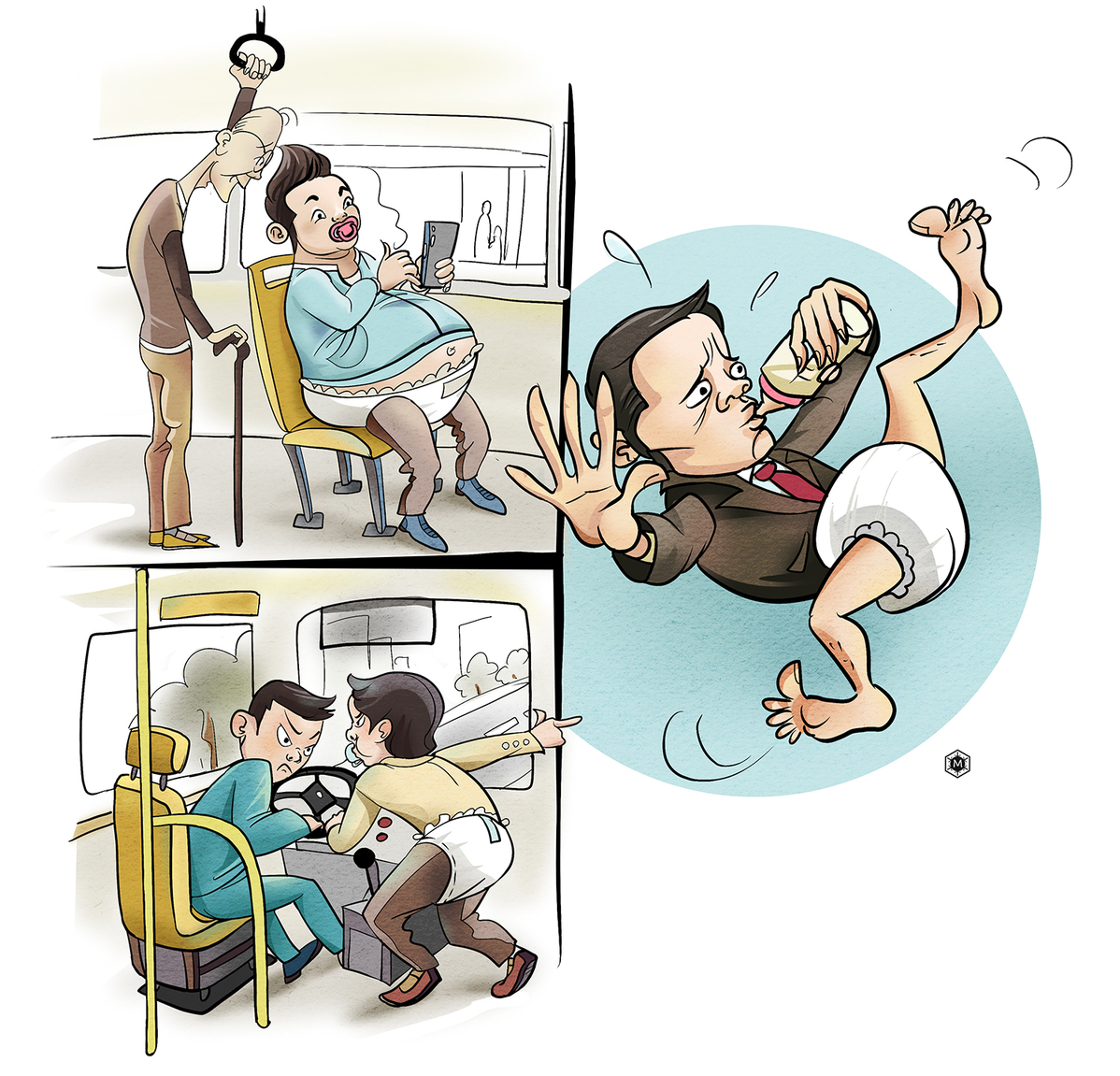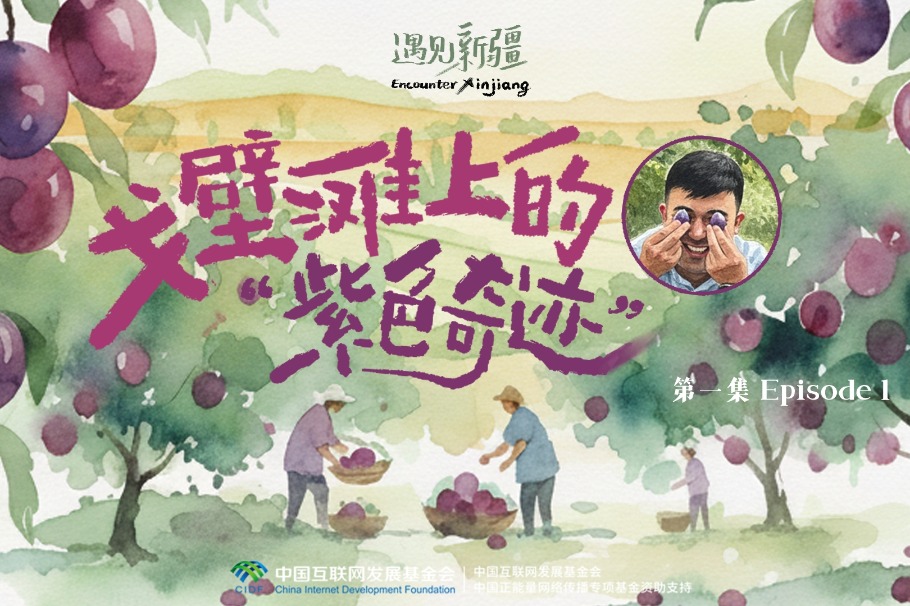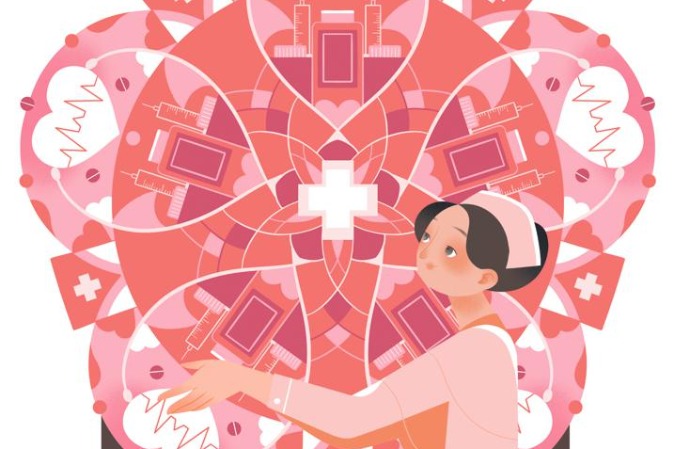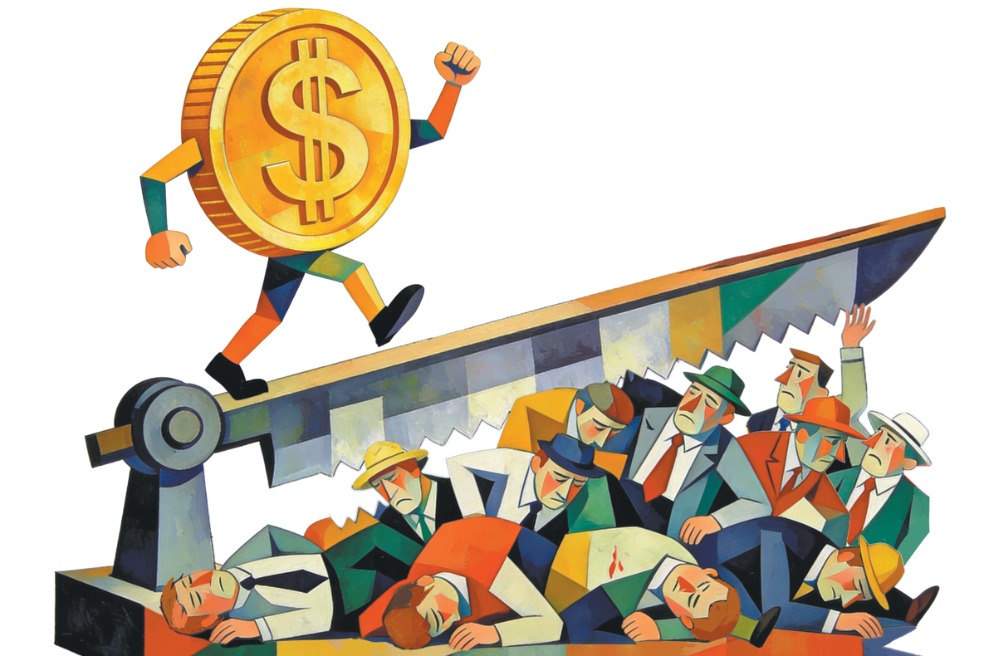'Grown-up babies' harmful to social harmony


As usual, famous literary periodical Shuowenjiezi released this year's top 10 Chinese hot words earlier this month. Among the 10 words most frequently mentioned in the media and on the internet, ju ying (literally a "giant baby" but more precisely a "grown-up baby") has triggered heated discussions among the public due to a series of incidents in 2018, and also because it is not a new term.
The term ju ying was first used by consulting psychologist Wu Zhihong in 2016, who has authored a book in which he describes and analyzes the irresponsible and immature (rather child-like) behaviors of Chinese adults-that is, physically grownup but mentally immature people.
Later, media outlets and netizens extensively used the term to describe a certain type of people-who are not only unreasonable but also rude and annoying in social life.
These people are always self-centered and selfish, lack social consciousness and have an inherent disregard for rules. They always try to use every possible means to achieve their own goal violating even the basic social norms and ignoring other people's feelings and concerns. And if they cannot meet their demand, they suddenly lose their temper and use aggressive means to achieve their goal.
"Grown-up babies" have come in for much more criticism this year, after a few of them caused several serious incidents, which went viral on the internet. In August a video showed a man occupying another passenger's seat by the window in a high-speed train from Jinan, Shandong province, to Beijing and shamelessly refusing to shift to his allotted seat. Which prompted netizens to severely criticize the "grown-up baby" for his rude, obstinate and anti-regulatory behavior.
Another "grown-up baby" was responsible for a far worse incident, a fatal bus accident, in Chongqing on Oct 28. A woman passenger, angry at not being able to get off the bus at her designated stop, fought with the driver forcing him to lose control of the vehicle and plunging into the Yangtze River. Fifteen people lost their lives in the accident.
On Baidu index, the Chinese search engine's big data platform, netizens' search for "grown-up baby" peaked this year after the cause of the accident was announced on Nov 2.
From unpleasant experiences in social life to disastrous accidents, people began reflecting on why there were so many "grownup babies" in our society.
Some said the "grown-up baby" syndrome has something to do with parenting, and attributed the prevalence of the phenomenon to China's one-child family structure. This view supposes that an only child hogs all the attention and care from the family members and always gets whatever it wants. As a result, such children remain unruly and become less responsible after growing up.
But the "spoiled child" hypothesis may not hold much water, as not all "grown-up babies" are the only child of their parents. Ironically, adults who behave like stubborn children-such as occupying other people's seats in public transport vehicles, jumping a queue or even attacking bus drivers-are almost always middle-aged people or senior citizens, who are very likely to have siblings and thus might not have been pampered by their parents when they were kids. Some netizens have even made fun of such people saying they are essentially "bad guys growing old".
But perhaps a more appropriate cause of the "grown-up baby" phenomenon is social influence. The "grown-up babies" have little or no respect for rules, because our society has much to improve in making rules and strictly implementing them.
Harmony forms the core of traditional Chinese culture. It is good for social development and cooperation, but it could also prompt people to focus more on human, rather interpersonal, relationship than sticking to rules. Some people therefore lack the necessary sense of limit-and some "peacemakers" unconsciously or unwittingly blur the line between right and wrong to achieve the so-called peaceful result.
In a society, sound rules and regulations are not enough to maintain harmony, as people with weak moral values will exploit the loopholes of law enforcement to get whatever they want through irrational and aggressive means. Many people say there exists a phenomenon in China in which resources are distributed based not on need but on how shameless a person could be.
Before Chongqing's bus tragedy, a countless number of incidents in which unruly passengers attacked bus drivers had been reported, but many of the offenders didn't receive any punishment or were only detained for a few days despite seriously endangering public security. To some extent, these "grown-up babies" use the prevailing social environment to act the way they do.
Yet the social anger directed at "grown-up babies" reflects the improvement in Chinese people's moral values, and people's increasing awareness of the importance of following the regulations and laws.
This year marks the 40th anniversary of reform and opening-up, and one of the most valuable lessons we have learned in the past four decades is to respect rules. I am optimistic that the hot word of the year will gradually become history as the rule of law is strengthened in China.
The author is a writer with China Daily.































